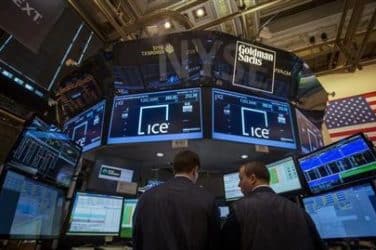
MiFID II will establish position limit rules.
New regulations for reforming financial markets in Europe are garnering mixed reviews, with much of the criticism being directed on MiFID II’s impact on commodity derivatives.
The European Commission said that there exists a clear need, in line with G-20 commitments, to reinforce the regulation of commodity derivatives markets beyond currently policy initiatives for other derivatives markets.
The MIFID review introduces a position reporting obligation by category of traders. This harmonized and more disaggregated information is intended to help regulators and market participants to better assess the role of financial flows in these markets.
MiFID will also give harmonized and comprehensive powers to financial regulators to monitor and intervene at any stage in trading activity in all commodity derivatives, including position limits.
Fewer commodity firms will be exempt from MiFID when they deal on their own account in financial instruments on an ancillary basis as part of their main business, and when they are not subsidiaries of financial groups.
“They essentially rewrite the regulation of commodity derivatives trading in the EU,” Jacqui Hatfield, partner in the financial services regulation practice at Reed Smith in London, told Markets Media. “They will tighten regulation by narrowing the exemptions from financial regulation available to commodity derivatives traders, harmonizing third country access to European counterparties and customers and establishing new position management and position limit rules.”
The provisions echo those adopted in the United States, where the Commodity Futures Trading Commission has dropped a provision on aggregation of positions which would have allowed a company to disaggregate the positions of an “owned non-financial entity” in which it owns a 10 percent or greater interest provided that it could demonstrate that the futures and swaps positions of the entities are independently managed and controlled (the “Owned Entity Exemption”).
If a fund becomes an owner of ten percent or more of an operating company, then the final rule could be construed as providing that the operating company and their trading personnel may not qualify as an independent account controller, notwithstanding an absence of control over the operating company’s trading activities.
“The reforms are hampering energy companies,” said Hatfield. “They will be incentivized to enter into standard clearable contracts which may not cover all the risk required to be covered; brokers may decide not to deal with them or agree to do so, but at a more costly price to deal with counterparty risk.”
Some energy companies will need to be authorized as a result of the MiFID reforms. Many carry out matched principal trades on behalf of group companies. They may not be able to continue to use the MiFID exemptions if they are deemed to be executing orders on behalf of clients.
“If they go outside of the EU to Switzerland, most energy companies are exempt from authorization in Switzerland and are not authorized there,” Hatfield said. “It is difficult to see how they can meet the third country recognition requirements if they are unauthorized.”
Currently the access of third country firms to the EU markets is not harmonized under MiFID. Each Member State can introduce its own third country regime.
In order to overcome the existing fragmentation and to ensure a level playing field in the EU for third country players, MiFID Ii proposes a harmonized third country equivalence regime for the access of third country investment firms and market operators in the EU.
Equivalence will be granted only if the third country provides access to EU-based firms on a reciprocal basis.





